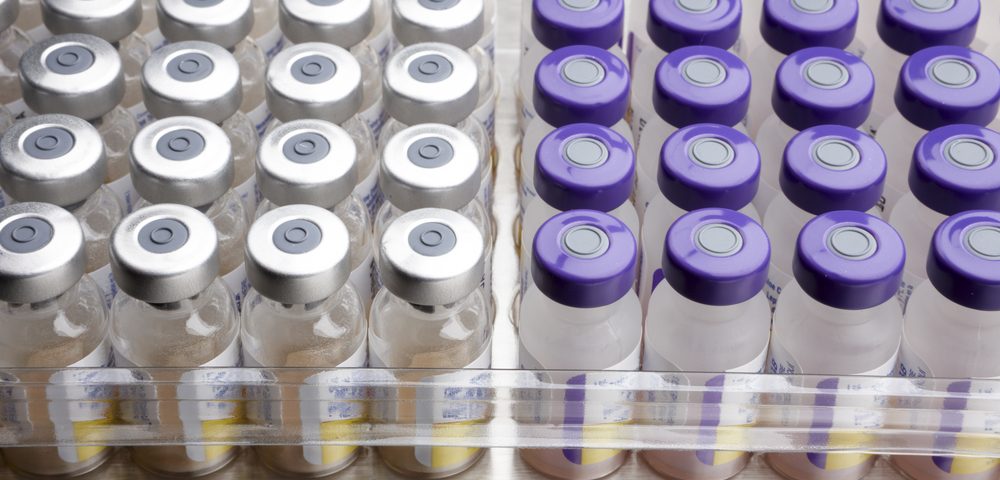IBI301, a biosimilar to Rituxan (rituximab), has a similar response rate to the original compound in people with B-cell lymphomas, and behaves similarly inside the body, preliminary results of two trials show.
The data, confirming that both trials achieved their primary endpoints, were presented at the 22nd Annual Meeting of Chinese Society of Clinical Oncology (CSCO), held recently in Xiamen, China.
“Innovent is [striving] to develop and commercialize high quality biopharmaceuticals that are affordable to ordinary people. The clinical results of IBI301 are very exciting. We hope to benefit more patients and their families through our efforts,” Hui Zhou, vice president and head of oncology strategy and medical sciences at Innovent, said in a press release.
IBI301 is a Rituxan biosimilar developed by Innovent and Eli Lilly. Biosimilars are medical products that are nearly identical to approved therapies, but are manufactured by a different company after the original patent expires. Such medications usually lower healthcare costs.
The effects of biological molecules manufactured in cells — which is the case of Rituxan and IBI301 — are more difficult to replicate than those of artificial chemical compounds. Therefore, companies must show data proving that a candidate biosimilar has safety and efficacy profiles similar to those of the original compound before they are approved.
Rituxan is the only anti-CD20 therapy — a type of medicine that specifically recruits immune cells to attack blood tumor cells — currently approved in China. The medicine has proved to be efficient and safe for people with non-Hodgkin’s lymphoma and diffuse large B-cell lymphoma.
However, there is still an unmet need because many patients can not afford the treatment. If approved, IBI301 would be a high-quality and affordable alternative for this population.
Researchers are now conducting two separate studies in China comparing IBI301 to Rituxan in people with B-cell lymphoma.
The CIBI301A201 Phase 1 trial (NCT02945215) is designed to study the treatment’s pharmacokinetics, or how it behaves inside the body. It also is assessing IBI301’s safety, tolerability, and immunogenicity — whether the immune system attacks the therapeutic molecules.
The trial included 181 people with CD20-positive B-cell lymphomas — 89 of whom were assigned to receive IBI301, and the remaining 92 who were given Rituxan. So far, all measures show that IBI301 and Rituxan behave and are processed in the same way by the body.
Meanwhile, the CTR20160493 Phase 3 trial (NCT02867566) is studying whether IBI301 has a similar safety and efficacy profile to Rituxan in newly diagnosed diffuse large B-cell lymphomas (DLBCL).
This trial included 420 participants, randomly selected to receive IBI301 or Rituxan, complemented with standard CHOP chemotherapy. CHOP is a combination of cancer drugs that includes cyclophosphamide, doxorubicin, and vincristine, and the steroid prednisone.
The study’s primary endpoint is objective response rate, or the proportion of patients who achieved a reduction in tumor size. That endpoint has been achieved. As of of the Jan. 18, 2019 cut-off date, the proportion of patients responding to IBI301 was 89.9%. The value for Rituxan was 93.8%.
“The Phase 3 study comparing IBI301 and rituximab in combination with standard chemotherapy (CHOP) in patients with DLBCL shows a comparable ORR [objective response rate] and safety profile with the branded rituximab, which suggests biosimilarity between IBI301 and branded rituximab. We hope that the drug can be launched soon to benefit more lymphoma patients,” said Zhu Jun, a professor at Beijing Cancer Hospital.
Based on the results of the studies, the companies submitted a New Drug Application for IBI301 to the Chinese regulatory agency. The medication was granted priority review status in June 2019.
“The launch of IBI301, a high-quality rituximab biosimilar co-developed with Eli Lilly and Company, will improve drug accessibility and benefit more patients,” said Lugui Qiu, a professor at Blood Diseases Hospital, Chinese Academy of Medical Sciences.


